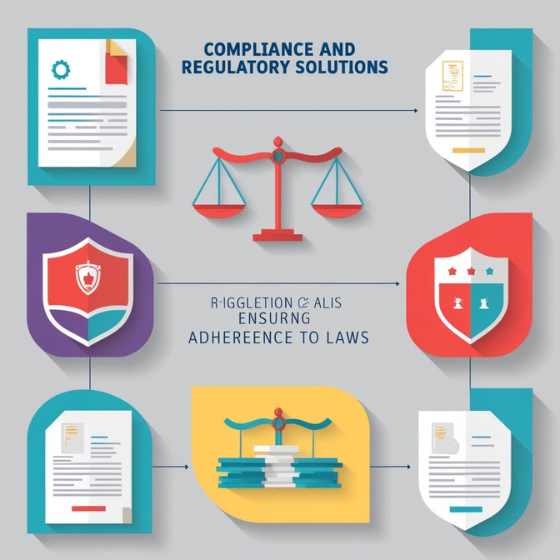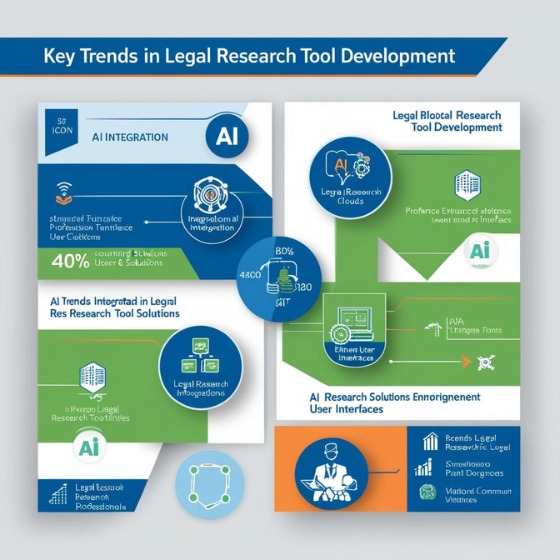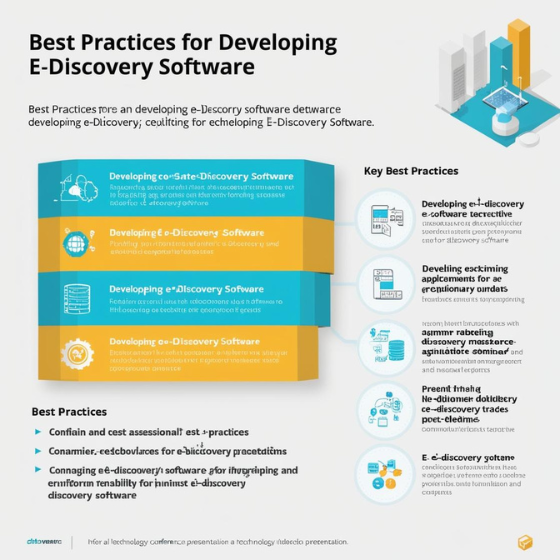Legal Research Tools: Accessing Legal Information
In today’s fast-paced legal world, accurate and timely access to legal information is crucial for legal professionals. Whether you’re a lawyer, paralegal, or legal researcher, having the right tools at your disposal can make the difference between winning or losing a case. Legal research tools are essential in ensuring that professionals can find, interpret, and apply relevant laws, statutes, case precedents, and regulations. With the increasing volume and complexity of legal documents, it’s vital to use powerful research tools to stay ahead in the legal field.
In this blog, we’ll explore the significance of legal research tools, how they work, and the best practices for leveraging these resources to access legal information efficiently and effectively.
Why Legal Research Tools Are Essential
Legal research is one of the most time-consuming and labor-intensive aspects of the legal profession. Traditionally, lawyers would spend hours sifting through physical books, case files, and legal archives to find relevant information. While this method was effective in the past, it was also slow and prone to errors. Modern legal research tools have revolutionized this process, providing quicker and more accurate results, which is crucial for building strong legal arguments.
Here are a few key reasons why these tools are so important:
- Speed and Efficiency: Legal research tools help save time by providing instant access to a vast range of legal documents, case laws, and other resources. This speeds up the overall research process and allows legal professionals to focus on analysis and application rather than data collection.
- Accuracy and Reliability: Research tools typically provide more accurate and up-to-date information than traditional research methods. Automated tools can search thousands of legal sources and present the most relevant results, helping lawyers avoid costly mistakes due to outdated or incorrect information.
- Cost-Effective: Legal professionals can save on resources, including time spent on manual research and even the costs associated with hiring additional staff or consultants to assist with legal research. With the right tools, a lawyer can perform their own comprehensive research, increasing profitability for the firm.
- Access to Comprehensive Resources: Legal research tools offer access to a wide array of legal sources, including statutes, case laws, legal journals, treatises, and more. This ensures that lawyers have access to all the information they need for informed decision-making.
Key Types of Legal Research Tools
The world of legal research is vast, and there are many tools available to help professionals navigate it. Depending on your needs, you may need one or more of the following tools to improve your legal research capabilities.
1. Online Legal Databases
Online legal databases are perhaps the most well-known type of legal research tools. These platforms aggregate legal documents and provide a comprehensive collection of resources, such as case law, statutes, regulations, and legal commentary.
Some of the most popular legal databases include:
- Westlaw: This is one of the most widely used legal research tools, offering access to an extensive collection of primary and secondary legal materials, including case law, statutes, regulations, and legal articles.
- LexisNexis: Similar to Westlaw, LexisNexis provides access to a wide range of legal documents and tools for researching case law, statutes, legal news, and academic papers.
- Bloomberg Law: This legal research tool combines the functionality of a legal database with business intelligence features, providing timely news, case law, and data analytics for legal professionals.
These online databases allow users to search for specific keywords, citations, or case references, and they offer tools like citation checkers and search filters to refine the search process. Most importantly, they ensure that the data is up-to-date and relevant.
2. Legal Citation Tools
Citation tools are vital for ensuring the proper and accurate citation of legal documents, statutes, and case laws. These tools automatically format citations to ensure compliance with legal citation standards such as the Bluebook or ALWD Guide.
Popular legal citation tools include:
- Fastcase: This tool offers free and paid legal research services with a focus on case law and legal research tools, including citation functionality.
- CiteRight: An easy-to-use tool that helps lawyers create citations for legal documents automatically.
Legal citation tools ensure that legal professionals maintain accuracy and credibility when referencing legal precedents and sources.
3. Case Management Software with Research Integration
Case management software, such as Clio or MyCase, is designed to help legal teams manage client cases, track deadlines, and store documents. Many modern case management platforms have integrated research tools that allow users to directly access legal documents, case law, and other resources from within the software.
These tools can streamline the process of managing case files and conducting legal research by eliminating the need to toggle between different platforms. By having everything in one place, legal professionals can quickly access the research they need while keeping track of all relevant case information.
4. Legal Search Engines
While traditional search engines like Google may provide some results, they are not tailored to the legal industry and can often return irrelevant or unreliable information. Legal search engines are built to specifically search for legal resources, such as case law, statutes, and regulations.
- Google Scholar: Although it’s not a dedicated legal search engine, Google Scholar allows users to search for case law, legal opinions, and academic legal papers. It’s a great free tool for accessing legal information.
- Justia: This free legal research tool provides access to a comprehensive database of case law, statutes, and regulations. It is especially useful for legal professionals on a budget.
- CaseText: CaseText is an AI-powered legal search engine designed to help lawyers quickly find relevant case law by analyzing briefs and searching for related cases.
These search engines help streamline the research process, allowing professionals to quickly locate relevant legal documents.
Best Practices for Using Legal Research Tools Effectively
While legal research tools are powerful resources, using them effectively requires the right approach. Below are some best practices that can help you make the most of these tools:
1. Master the Search Functionality
Every legal research tool has its own search capabilities, and mastering these features is key to obtaining relevant results. Learn how to use Boolean search operators, filters, and advanced search features to refine your results. Most legal research tools also offer tutorials and support, so take advantage of these resources to maximize your efficiency.
2. Cross-Check Information
While legal research tools provide access to comprehensive databases, it’s always a good practice to cross-check information across multiple platforms. Different tools may offer slightly different interpretations of case law, or they may present updates in distinct formats. Cross-referencing helps ensure the accuracy of your research.
3. Stay Updated on Legal Developments
The law is constantly evolving, so it’s essential to keep your research tools up to date. Many platforms offer alerts for new case rulings or legislative changes, which can help you stay informed and anticipate changes that may affect your case.
4. Leverage AI and Analytics Features
Some modern legal research tools, like Ravel Law or Casetext, use artificial intelligence (AI) to analyze and predict case outcomes. These tools can provide valuable insights into how a judge might rule based on previous decisions and trends, giving you a competitive edge in your legal research.
5. Organize Your Research
It’s easy to get overwhelmed with the vast amount of information available through legal research tools. Make sure to keep your research organized by tagging documents, bookmarking critical case law, and creating research notes. This will make it easier to retrieve information when needed and improve the efficiency of your research process.
Conclusion
The advent of legal research tools has transformed how legal professionals access and use legal information. By embracing these tools, legal teams can streamline their workflow, reduce errors, and improve efficiency. Whether you’re searching through case law, reviewing statutes, or gathering secondary legal sources, the right tools make a world of difference in your research process.
By integrating legal research tools into your practice, you ensure that you can stay ahead in an ever-changing legal landscape. For those interested in further enhancing their legal research capabilities, exploring advanced case management systems, or integrating AI into your practice, contact Sodio today to learn how we can help develop efficient, cutting-edge legal solutions.







